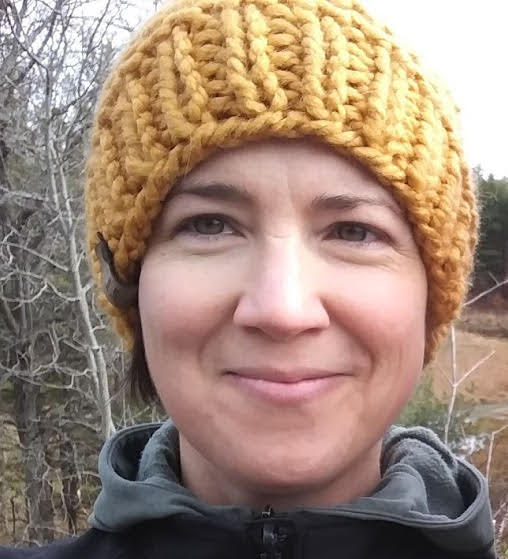I’m doing a mad sweep of the house, stacking and re-stacking piles of homework, shoving books onto shelves, picking up toys and throwing them into the stacked bins that are meant to help us keep things tidy. This is my ritual when I feel tense, my vain attempt to restore order, which is not, I’ve learned, ever really possible, and certainly not something I can achieve in under an hour.
While I’m dusting the shelves in K’s room, the cloth catches on my dad’s harmonica. It’s in a slender red and white cardboard box with chunky blue letters that spell HOHNER INTERNATIONAL BLUESBAND. It rests on K’s nightstand, close to a framed photo of my dad playing it—the shrine I made, thinking it would keep him around a little longer.
The photo was taken on a canoe trip. In it, my dad is propped up against a backpack on the ground. A canoe rests on the sand behind him, and beyond that, a drunken sun sinks gently into the river. His hands are wrapped around the harmonica at his mouth, so that all you can see of his face are his eyes, both playful and kind as he gazes back at the photographer. It’s one of the quintessential photos of him, one that made us gasp when we found it among the albums we ransacked in the aftermath, desperate for comfort, gathered on the floor at the foot of his chair because no one dared to sit in it. It’s the photo everyone wanted copied, not only because it captures his indescribable singularity, but because of the hazy, ethereal sunset behind him, blurring him just so, and if you stare at it long enough, the magic will wash over you, and with that, the gift of a memory– like the way he’d bow his head as he played, the shrug of his shoulders when he felt shy, the gentle sway of his body when he heard a song he loved.
It may as well be a postcard from the afterlife.
K inherited the harmonica on his fourth birthday. When he opened the box, he immediately blew into it, making a familiar jangle of notes that cut through me unbearably, beautifully. But it was the gesture—the ease with which he picked it up with one hand and ran it over his mouth—a quick, innate movement that snagged my breath in my chest.
There he is.
Recently, the photo got knocked over during play, and I rushed to right it, checking first that the glass hadn’t broken.
K watched me carefully.
“Why do I have a picture of Gramps in my room?”
“Oh, I don’t know,” I answered. “So you won’t forget him.”
We looked at the photo, K holding the ball that had knocked it over. I turned to him.
“Do you remember him? Do you remember Gramps?”
He nodded, but in his face was the truth of what I already knew. And the pain of knowing that he was pretending for my benefit, because of an instinct to spare my feelings, well, it was too much. It was a thousand times worse than forgetting, worse than being simply too little to remember.
The shrine shifts around these days, competing for shelf real estate among stuffies, special rocks, and gluey art projects from school.
I can’t go back to do it all over again, but if I could, I’d try to loosen my grip. I’d try harder to protect my son, to remember that my grief isn’t his to carry.
For now, I just pick up the harmonica, dust the space beneath it, and lay it back to rest. And I move through the other rooms, gradually putting the house back together, and from there, I go on to face the rest of the day.

Rachel Eagen
